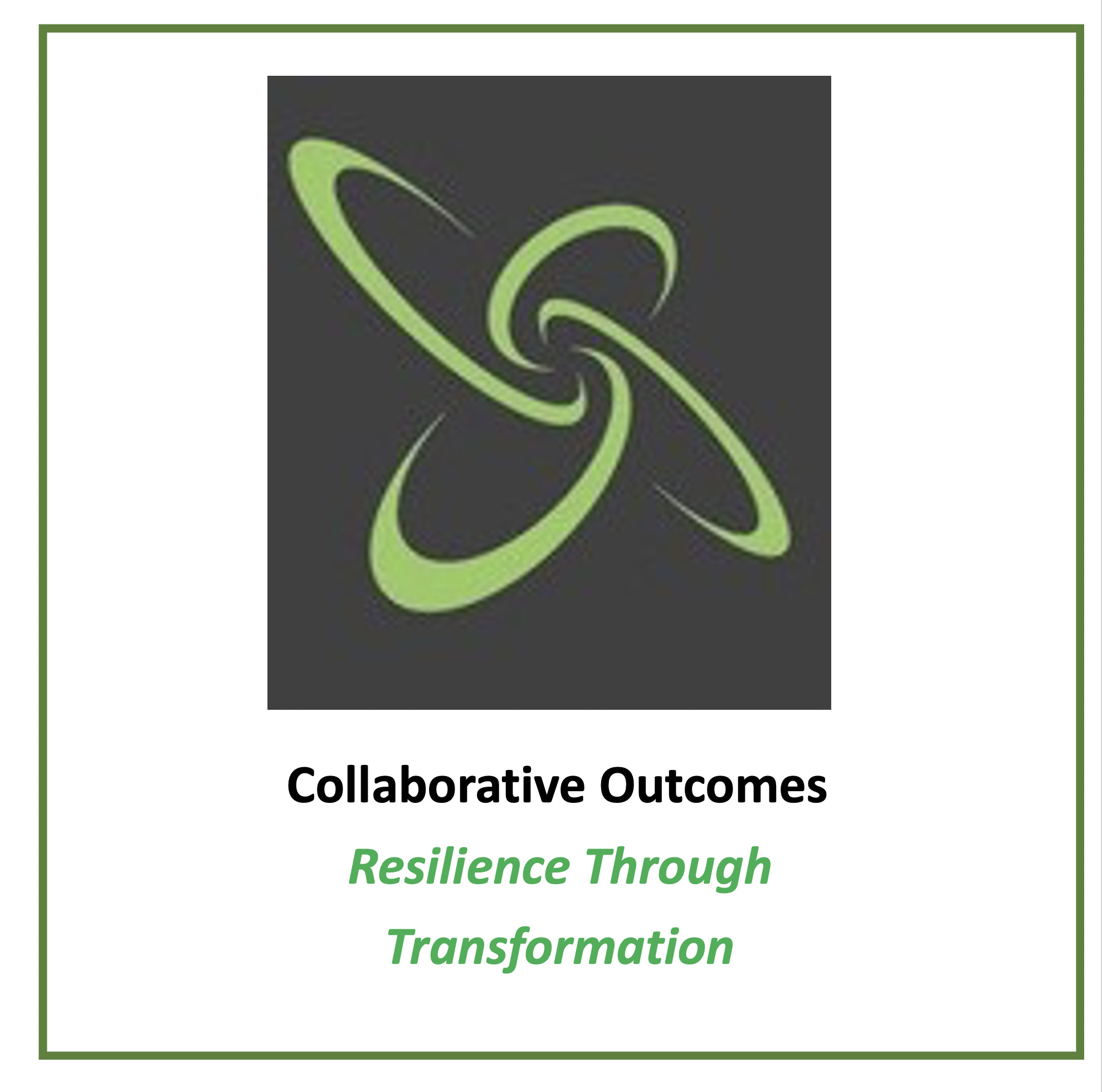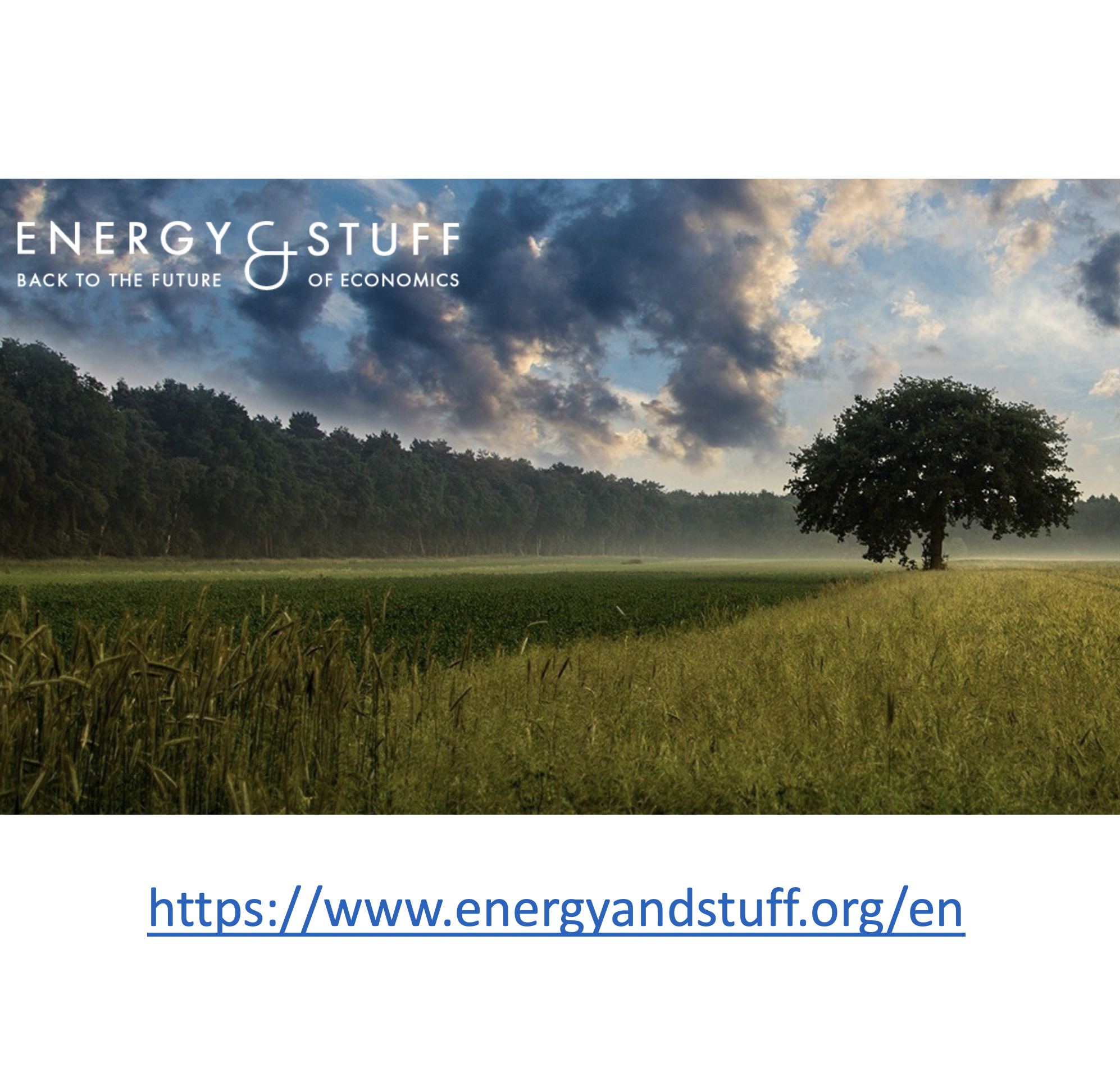THE IIER-Australia
The Institute for Integrated Economic Research-Australia
The Institute for Integrated Economic Research (IIER) - Australia was founded in 2018. It conducts and supports research in order to contribute to an improved understanding of how Australians can plan for, and navigate, the significant transitions in Energy, Environment and Economic Systems over forthcoming decades whilst maintaining the stability and security of our society.
These three areas are closely interlinked, but largely managed as separate competing issues, as a result of near-term political goals. We need a National Security or Sovereignty Strategy that integrates these and other related systems, such as information and infrastructure, under a National Resilience Framework.
To address this challenge, the Institute will engage with a range of Australian think tanks, Universities, Federal and State Government department representatives, media and relevant community groups. The Institute is an independent, non-partisan, not-for-profit organisation. It will not lobby for, nor represent, any specific industry sector or business.
The IIER-Australia Board members are : Air Vice-Marshal (Retd) John Blackburn AO, Anne Borzycki, Neil Greet, Dr Hannes Kunz and Dr Gary Waters.
The Institute’s Fellows are Dr Simon Quilty, Dr Paul Barnes, Dr David Hyland-Wood, Dr Graeme Taylor, Cheryl Durrant, Bernadette Hyland-Wood, Ian McDonald AM, Dr Michael Thomas, Dr Anthony Bergin, Professor Ted Goranson, Dr Robbin Laird, Lloyd Bennett, Stephen Hayes MBE, Dr Ed Morgan, Vince Di Pietro AM CSC, Jack Jacometti, Ian Dunlop, Dr Pamela Kinnear, Dr Stephen Mugford, David Korowicz, Dr Peter Sokolowski, Hans van der Loo and Dr Andrew Dowse AO.
The Institute has also initiated an Associates program whereby individuals can be researchers and contributors to IIER-A activities.
The IIER-Australia is affiliated, but not financially / organisationally linked with the Europe based Institute for Integrated Economic Research. That Institute is a non-profit organization that is focused on identifying empirically validated macroeconomic system descriptions and models, and ensuring their dissemination. The IIER-Australia benefits from the extensive research conducted by the IIER in Europe. IIER Europe publications and links are at the bottom of this page.
Sponsors
OUR PARTNER ORGANISATIONS
Statement from the IIER-Australia Board
At the AGM IIER Board meeting on 31 Mar 2020, the Directors decided to issue this statement:
IIER-Australia seeks to influence the future of Australians by improving our understanding of the energy, environment and economy within a framework of national resilience. We started in 2018 with the intent of researching and understanding systemic risk that makes Australia vulnerable.
2020 has brought enormous challenges to Australia and the global community. We understand that many Australians will suffer significant difficulties for a protracted period, particularly the most vulnerable. IIER-A is not able to provide direct support to those suffering hardships.
What we can do is help Australians understand why we have found ourselves in this situation and how we can adapt and be better prepared for shocks in the future. We hope future Australians will benefit from honest ‘knowledge’.
We understand Australians have worked hard and our society has enjoyed the fruits of sustained economic growth. Now is the time to ensure we can also be a resilient nation. This will be a challenge as we will have to change what we did in the past. We will have to change our lifestyle and expectations, and this will be a hard road for all of us. We cannot shirk the challenge now before us.
In our research and suggested ideas for a sustainable future we will ask hard questions of ideology and actions of the past, and ask the key question: ‘Are these ideas and actions still fit for purpose?’. This is not to attribute blame, destroy institutions or please the mob with a public lynching of someone. This will be about honesty. It is not about the past – it is about a sustainable future.
We are committed to developing, in concert with other like-minded parties, a national resilience and security strategy that will serve our country’s benefit. That is what we will do, and we wish all Australians the best in this time of crisis.
John Blackburn, Anne Borzycki, Neil Greet, Gary Waters
CURRENT PROJECTS
AUSTRALIA’S NATIONAL RESILIENCE
The IIER-A is teaming with Global Access Partners (GAP) to develop a project that will examine Australia’s National Resilience. GAP was established in 1997. It is an independent organisation which brings together creative thinkers and decision makers from business, government, academia and non-government organisations to pursue projects and ideas for the national good. The project is under development and, subject to funding, should commence in the second quarter of 2020. The overview of the project follows:
Our security as a nation depends on our nation’s resilience. To paraphrase the 2018 Home Affairs Department report ‘Profiling Australia’s Vulnerability,’ what effects the nation’s resilience is the array of choices and decisions that have been made over generations and the decisions being made now that affect future generations. Fundamentally, the values and trade-offs inherent within these decisions have consequences, and getting the balance right is a complex challenge.
Australian’s are in the midst of a series of natural disaster events, exacerbated by climate change. There is little about the current crisis that should surprise us; the drought and massive bushfires plaguing our country have long been predicted. Despite this, our preparation has been found to be lacking, our acceptance of the need to adapt poorly understood and the need to limit or prevent further such events is an issue that is being left to future generations to address. The tyranny of the urgent makes deeper reflection on issues, with generation-spanning consequences, a political impossibility for some.
Unfortunately, addressing what has been termed “natural disasters” will not be enough. We need more than a bushfire resilience program hastily developed in reaction to the current crisis. We must address both natural and unnatural disasters where the latter are intentionally triggered or are the result of collateral damage resulting from other nation’s actions. An example could be cyber or physical attacks on our territory, economy, critical infrastructure and/or supply chains. Our 90% import dependency for fuels and medicines is a particular example of our growing lack of resilience. Our concerns regarding water security are also a resilience issue that must be addressed in an integrated manner.
If we address our risks and vulnerabilities in an integrated manner, we can improve our resilience. Improved resilience means improved security. We need an integrated national resilience framework, strategy and action plan. A plan that will enable us to prepare for a broad range of natural and unnatural disasters, to identify where we must accept reality and adapt to cater for a changing world and to prevent, wherever feasible, the compounding of our vulnerabilities in the future. The plan must be a compelling narrative that motivates Australians to demand and take action rather than just reflect or complain.
There is a 2018 Natural Disaster Risk Reduction Framework developed by the National Resilience Taskforce within the Australian Government Department of Home Affairs. The Taskforce Terms of Reference did not include unnatural disasters in their scope of work. However, rather than “reinventing the wheel,” this existing framework and a range of associated analyses can provide an excellent foundation on which we can build a broader, integrated, National Resilience Framework, strategy and action plan that addresses the full disaster spectrum.
Utilising the GAP Second Track model, the development of an integrated National Resilience Framework, strategy and action programme is proposed. A possible action that could emerge from the project is the establishment of an independent National Resilience Institute, funded by Philanthropy, Federal and State Governments and Industry, to help catalyse improvements in our national resilience over the forthcoming decades.
project update
As a part of our National Resilience Project, IIER-Australia is coordinating a series of workshops in May, June and July 2020. We intend to take the opportunity to look at our nation’s resilience through the lens of a world overwhelmed by COVID-19, and in an emerging environment that has been described as trending towards global anarchy. Our intent for the project is to make a contribution to the conversation we have to have in Australia when we emerge from the pandemic crisis.
The workshops will address Australia’s national resilience using the following streams:
National Resilience Framework
Culture & Community – issues of Trust and Social Coherence
Environment
Politics / Governance
Education and Research
Economy
Health
Energy
Trade / Supply Chains
Agriculture – Food and Water
Industry and Workforce
Information Systems and Data
Defence /First Responders
PUBLICATIONS
Smart Sovereignty & Trusted Supply Chains - A National Sovereignty / Resilience Imperative.
We had the opportunity to present the attached brief to the Australian Joint Parliamentary Committee for Foreign Affairs, Defence and Trade on 22 April 2020. Key points included:
The Coronavirus pandemic has exposed a global lack of resilience as a result of a collective failure to assess and act on national risks and vulnerabilities in the face of a rapidly changing world.
Global trade and diverse supply chains are essential and will remain the predominant model into the future. However, we need to redesign critical components of our supply chains using the “Smart Sovereignty” model described in the brief.
The complement to Smart Sovereignty is “Trusted Supply Chains.” Where we depend on global trade imports, we must have diverse and transparent supply chains and have the ability to verify them.
Shortages of personal protective equipment, medical devices, and medicines – what’s happening in Australia?
The COVID-19 pandemic has seen a significant increase in public discussion about medical supply chains in general, and Australia’s exposure to shortages of critical medical items because we are at the end of a long and complex global supply network.
The Australian National Strategic Stockpile of medicines and personal protective equipment (referred to as PPE) has also been in the headlines. Unfortunately, the shortages of critical PPE for frontline healthcare workers would suggest that the National Strategic Stockpile is falling well short of the need …
The scrambling by the Government, and indeed a number of not-for-profits, to procure PPE (especially masks) from whoever and wherever they can, should be a lesson for those responsible for the future stocking of the stockpile.
What could Australia do differently to be ready when, not if, the next pandemic strikes? And it is very unlikely we will be waiting 50 or 100 years for it to occur. As the financial advisors say - past performance is not a guarantee of future results ...
AUSTRALIA’S MEDICINE SUPPLY
- is our Health a National Security / Resilience Issue ?
Australia imports over 90% of medicines and is at the end of a very long global supply chain making the nation vulnerable to supply chain disruptions. The TGA has acknowledged these supply chain risks when they report that at times there may not be enough of a specific medicine in the Australian marketplace, leading to potential weaknesses in supply.
Australia is particularly vulnerable to medicine shortages arising from factors outside our control. These factors can include manufacturing problems, difficulties in procurement, political instability, pandemics, another global economic crisis and a range of natural disasters. The current Coronavirus emergency is an example of this.
MARITIME TRADE DEPENDENCIES AND RISKS
-
A National Security Issue
At the heart of a National Security Strategy, there should be a Maritime Trade Strategy. Today, in Australia, neither exist. This Article summarises the presentation made to the Australian Naval Institute Goldrick Seminar in Oct 19. It discusses some of the issues that could be considered in such a risk assessment. These include intentional interruption of trade, collateral damage from events such as an economic crisis leading to a failure of credit, natural disasters and climate change and PANDEMICS. Who would have thought ?
INTERVIEWS
Dare to Prepare
Ch 7 Weekend Sunrise Program interview on 3 May 20 regarding Australia’s supply chain vulnerabilities and the need for “Smart Sovereignty.”
Confidential report predicted how long it would take for essential services to break down during a major crisis
The 26 Apr 20 ABC 7:30 Report featuring IIER-A Fellow Cheryl Durrant and Chair John Blackburn.
COVID-19 Warnings Ignored?
Channel 9 Today Show 29 Apr 20 - "When you write about these things in times when you're not in a crisis, people aren't really that interested."
Think of coronavirus as a test run: Australian military leaders warn we must prepare for worse
As Australia was swept by panic buying and medical shortages this year, the scenes were eerily familiar for one of the country's most senior military planners … this is the 27 Apr 20 ABC online article featuring IIER-A Fellow Cheryl Durrant and Chair John Blackburn.
Defence Connect Podcast -
INSIGHT: National resilience – John Blackburn AO, Institute for Integrated Economic Research – Australia
On this inaugural episode of Defence Connect Insight Podcast, hosts Phil Tarrant and Steve Kuper are joined by John Blackburn to delve into the complex and somewhat controversial subject of Australia’s national resilience.
John Blackburn’s Interview with Dr Robbin Laird- April 2019
The interview discusses an example of a common problem in Australia – a lack of systems thinking in the Government. The current energy focus is on exports and export earnings at the cost of domestic security and domestic cost of energy supplies. Blackburn argues that if you take a broader view, we could consider how different energy supplies / systems could be integrated under a comprehensive strategy which would enable exports but within an approach that was based first upon domestic costs and supply considerations and national security.
Understanding Disaster Resilience - Climate Change
A short video for the Emergency Management Australia Disaster Resilence Workshops
NATIONAL SECURITY STRATEGY
The Gray Zone is Not Just an Away Game: We Are In Risk of “Losing Without Fighting”
Dr Robbin Laird’s interview of John Blackburn, Defense.info on 17 November 2019
Whilst many Defence writers proclaim the aim of “winning without fighting,” we are much more likely to end up “losing without fighting” if we do not get serious about our supply chain vulnerabilities and related issues.
The critical issue that Australians need to consider is what components of critical supply chains are owned or controlled by authoritarian powers. This clearly means that there is a need for a much broader security concept than simply preparing for high end kinetic warfare or engaging at distance from our nations in “gray zone areas.”
Trade and manufacturing vulnerabilities in our societies are reshaping the liberal democracies to be the “gray zones” when it comes to being vulnerable to deliberate disruptions in times of crisis.
We need to stop congratulating ourselves for acquiring the latest 5th Gen platform and understand that our security cannot be guaranteed merely by pledging to expend 2% of our GDP on Defence. We need a comprehensive National Security Strategy that acknowledges the world has changes.
Re-Thinking Australia’s National Security Strategy – Lessons from the 1930s for the 2030s
Published on Defense.info on 4 December 2019
During the 1920s the rise of Japan was preoccupying the national security discussions within the Australian Government. What role would Britain play in the Asia-Pacific region? Interestingly, these same issues and challenges are being discussed today in Australia: simply replace China for Japan, and the US for Britain.
By the 1930s the situation in Europe, and events unfolding in Asia (particularly Japan’s seizure of Manchuria), triggered a step-up in the rhetoric and policy considerations about Australia’s national security. The public debate involved not only the political leadership of the time, but intellectuals and businessmen.
A notable businessman of the era who contributed significantly to Australia’s capacity to prepare for the coming conflict was Essington Lewis, the managing director of BHP. He urged the government and industry to prepare for war and he also took action himself: establishing large stockpiles of raw materials, co-founding the Commonwealth Aircraft Corporation and establishing munitions annexes at the steelworks. How many business leaders today would have the foresight of Lewis and then take the lead in driving a national security agenda?
It is unfortunate that the whole-of-government approach so effectively employed during the Second World War, is not a feature of Australian government planning in 2019. How can the Australian government understand and manage the interconnected elements of national security (for example the economy, infrastructure, industry, maritime trade, energy, environment, defence) without a whole-of-government approach?
This whole-of-government approach should be integrated under a national security strategy.
SYSTEMS VIEWs
Energy Security - Is there a problem?
Published in the Australian Defence Magazine, September 2018.
Unfortunately the topic of energy has become so politicised, both between the major parties and within the Liberal party, that the national interest has been subsumed by both party and personal interests. The reality is that energy security, like national security, can only be addressed with consistent bipartisan political support.
Whilst Australia is endowed with natural resources, energy security risks across several sectors have increased. Despite this, the Government does not seem to think we have a problem. Unfortunately, energy security is about much more than just a more “reliable” and cheaper electricity supply. It is about our security as a nation, it is about protecting our society and our way of life and, as such, it is a very complex issue.
There are are significant issues with our energy systems that should concern us all; unfortunately, the analysis of our energy security and resilience is inadequate and the management of energy security has been outsourced to the market. The idea that we are at peace and “business as usual” is the appropriate model where the markets can manage all aspects of our critical infrastructure and supply chains is clearly out of date.
Energy security is a vital component of national security and an increased level of Government control / leadership with respect to energy security is warranted. The discussion of these issues is not just for our politicians; it is our collective responsibility to discuss these issues and to tell our politicians what we need to have done and not wait to just complain after our energy systems fail. We need a National Security Strategy that integrates all aspects of national power. An energy security plan should be an integral part of such a strategy.
Australia’s Economic Security: Is there a problem?
What is the risk for our National Security and Defence Capability?
Published in the Australian Defence Magazine, February 2019.
Financial and economic indicators that signal the start of a downturn are evident in advanced economies. Australia is at particular risk with households currently the second most indebted in the world and with a total private sector debt ratio of 205% of GDP. We are facing a serious economic security challenge; however, most Australians (including many of our politicians) do not appear to appreciate that economic security is the foundation of our national security.
We cannot rely on past economic performance and assume that we will have the resilience to address the significant economic risks in the decade ahead. Australians need to face an unpleasant reality and take appropriate action. We need a National Security Strategy that integrates all aspects of national power. An economic security plan should be an integral part of such a strategy.
Are our Assumptions about Climate Change and Environmental Degradation a risk to National Security?
Today we are confronted by global environmental degradation and climate change, occurring at an unprecedented scale and speed; with cascading and ramifying risks transferred to infrastructure, energy systems and the global economy. At this scale climate change impacts at every level of our military and national security systems. Yet, while the interlinking of climate and environment with national security is recognised, it is still seen as a driver that attracts only secondary or tertiary importance. This article is the third of the opening series by the Institute of Integrated Economics Research (IIER) - Australia, and completes the trilogy of economics, energy and environment framed within a national security perspective.
This article was published in the June 2019 issue of the Australian Defence Magazine
INFRASTRUCTURE - Health
Dr Simon Quilty’s Article on Australia’s Drug Supply Chain Risks
Australia’s supply chain for the entire range of healthcare products is incredibly complex. There are, of course, national and international regulatory frameworks to ensure quality and ongoing supply. However, these were set up more than three decades ago. Are they still fit for purpose?
INFRASTRUCTURE - ENERGY
National Hydrogen Strategy Discussion Paper Response
This paper was submitted by the IIER-Australia in response to the invitation to respond to the COAG energy Council National Hydrogen Strategy Discussion Paper in April 2019. It concludes that Hydrogen can contribute to Australia’s national security by providing an alternative energy source that is domestically generated, Australian-owned, economically beneficial, environmentally sound if supported by policy that takes energy security seriously.
Developing the policies to deliver the National Hydrogen Strategy must occur within the framework of national security and be implemented under an integrated system level design.
IIER (EUROPE)
The Institute for Integrated Economic Research is a non-profit organization based in Europe. It is focused on identifying empirically validated macroeconomic system descriptions and models, and ensuring their dissemination.
PRESENTATIONS - IIER Europe
In February 2018, Dr Hannes Kunz, President Board of Directors IIER visited Australia and gave this presentation at the Australian National University
Macroeconomics has locked into a view based on 250 years of industrialisation to describe an ecologically dangerous future. During the past 8 years new credit has globally grown at the fastest pace in tracked history, with less and less benefit for societies. Total levels are unsustainable and will eventually require a correction.
The presentation concludes that:
- Markets are fundamentally broken.
- Sustainable economic growth is a thing of the past - credit ballooning is a must to keep going
- We’re in a 5-15 year “positioning” period for various possible future scenarios
- There may be significant market movements (including upsides) during that period.
- Nothing is long-term predictable.
PUBLICATIONS - IIER Europe
IIER Paper - Revisiting the rules of economics
Most economic theories of the late 20th century are based on models built around the assumption of system-inherent growth. Despite still available headline GDP growth, most people in advanced economies are experiencing shrinking incomes and quickly growing cost of living.
Our world is not sufficiently prepared to deal with those trajectories. IIER research helps by shifting the focus of societies away from the objective of “getting growth back at all cost” to “mitigating possible stagnation or decline.”
IIER Paper - Nudging 3% of voters to keep democracies intact
This paper discusses how to reduce the voter potential of far-right or -left movements with simplistic “solutions” just enough to keep them from taking power and turning an already precarious economic and societal situation to even more dire proportions.
One major obstacle in fighting fringe parties is that few politicians today are ready to tell voters the truth: that the future might hold less economic promise and that we must stop focusing on growth, but instead accept the challenge to focus on wellbeing on a broader scale. A large proportion of advanced societies’ populations intuitively grasps this reality, as polls show, but it is neither supported by the electoral discourse nor any other credible source.






























